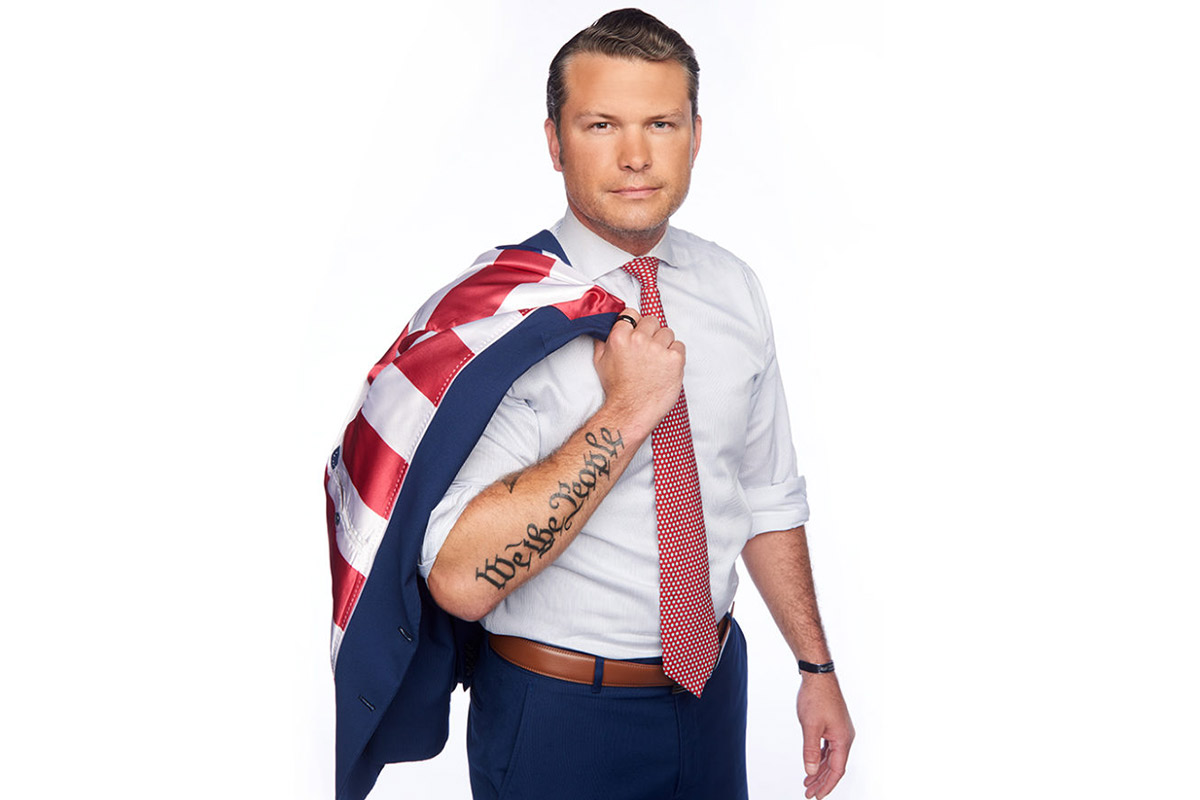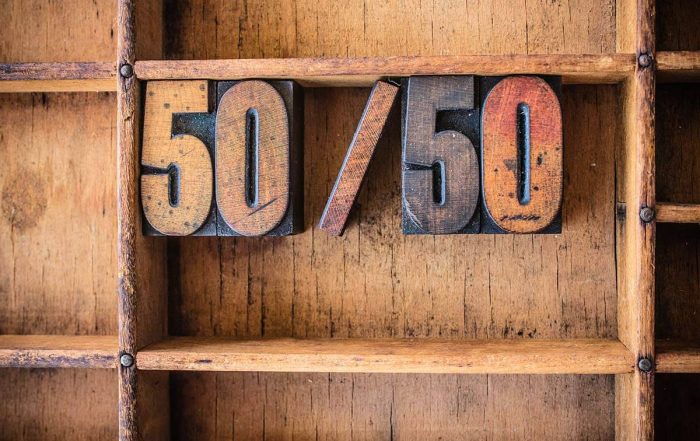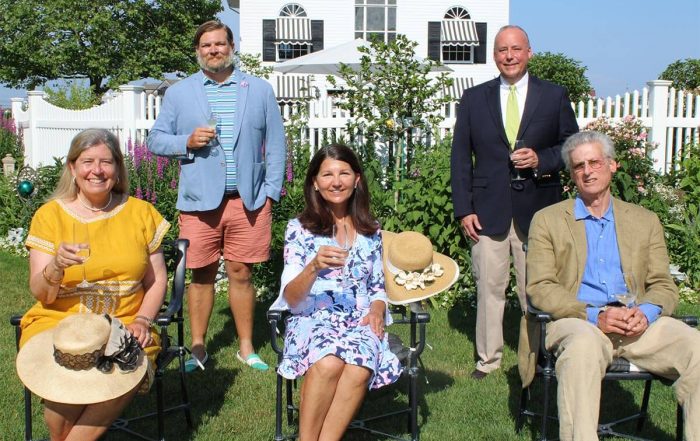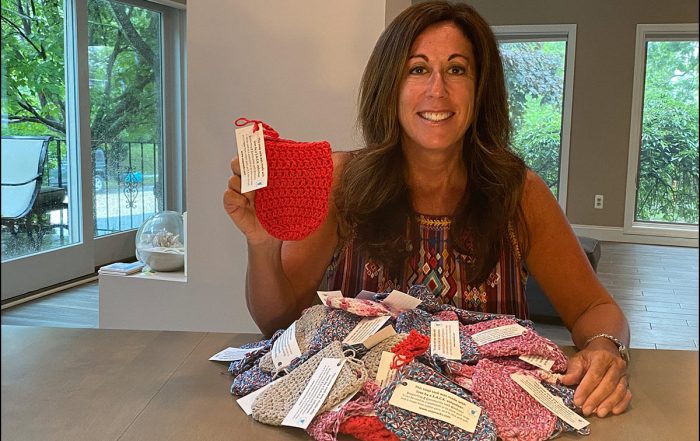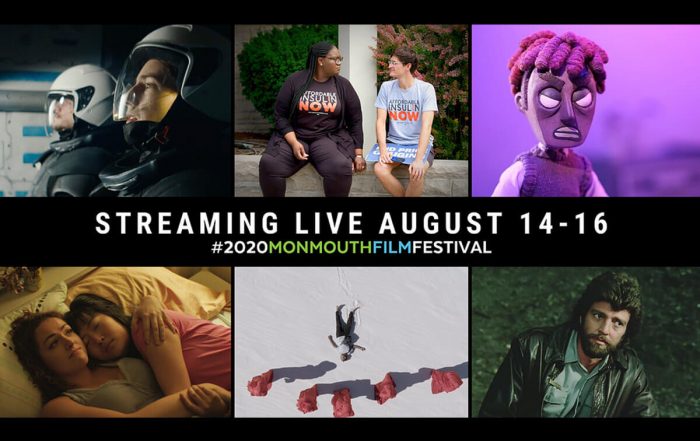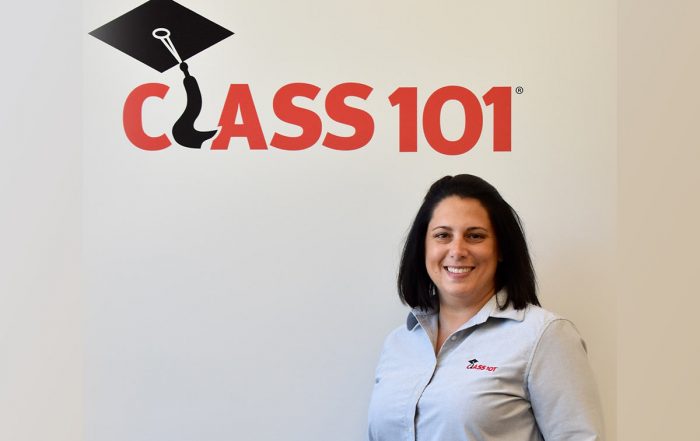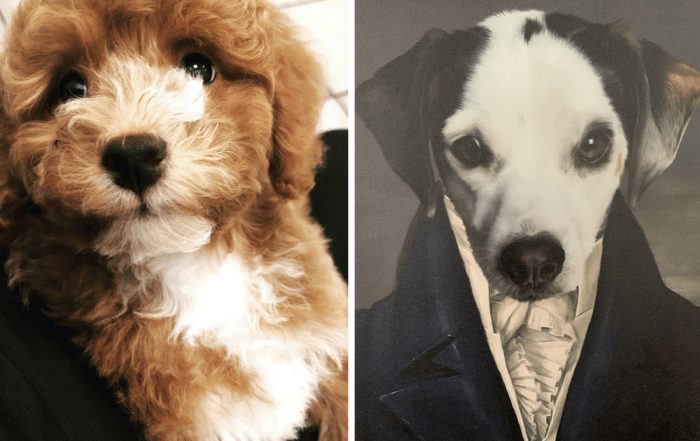FEATURED PHOTO: Pete Hegseth | CREDIT: Fox News
Valentine’s Day has traditionally been set aside to celebrate romantic love, or puppy love, or the love we have for our friends and families.
But each year the week of February 14 is also a time to show love through appreciation to a special group of men and women, the more than 98,000 Veterans of the U.S. armed services who are cared for every day in Department of Veterans Affairs (VA) medical centers, outpatient clinics, domiciliaries, and nursing homes. To celebrate the National Salute, we caught up with one of our most recognizable veterans living in Monmouth County – Pete Hegseth.
He’s a patriotic guy, going as far as having the words “We the People” tattooed on his arm. But his patriotism goes beyond ink and crosses into action and sacrifice. Pete Hegseth not only wore the uniform, he holds two Bronze Stars and a Combat Infantryman Badge for his time in Iraq and Afghanistan. A co-host on FOX & Friends Weekend and now a contributor on FOX Nation, Hegseth hosted the special Ace of Spades: The Hunt for Saddam Hussein. A former guest military analyst for CNN, MSNBC, and the FOX News Channel, Hegseth has written editorials in The Wall Street Journal, The Washington Post, New York Post, and The Washington Times. He’s run for Senate in his home state of Minnesota, worked for Veterans advocacy groups, and has authored the book In the Arena. In 2013, Hegseth completed his Master in Public Policy from the John F. Kennedy School of Government at Harvard University, and his career has taken him to the pinnacle of interviewing the President of our country. Having graduated Princeton, and now living in Monmouth County, Hegseth has made the Garden State home where he and his significant other, Jen, are raising their children.
Here’s our exclusive interview with an American hero, Pete Hegseth.
CM: Was there something in your childhood that prompted you to join the military?
Hegseth: I grew up in Minnesota in a very patriotic community filled with family, faith, love of country, and basic decency. We used to go back to my parents’ hometown in southern Minnesota, Wanamingo, often for the Memorial Day parade. It is a very small town, so the parade was very short, but it was always meaningful. We would stand on the side of the wide boulevard, the big main street in Wanamingo, and the veterans of every generation would walk down that street. I remember rising to my feet with the whole community, saluting, clapping, thumbs up. It wasn’t Veterans Day, but the reverence, the respect, that community showed to that handful of men who had fought in World War II and the Korean War and Vietnam, it impacted me. I felt like someday I would serve, someday I would give back to this country. I wanted to be willing to defend and fight for the freedoms that we cherish. I didn’t really come from a military family. Both my grandfathers were in World War II, but mostly post conflict. That’s why I’m such a believer in civic rituals. I’m a believer in ceremonies, and parades, and pledges, because sometimes those small things reinforce our inner-prompting to want to serve.
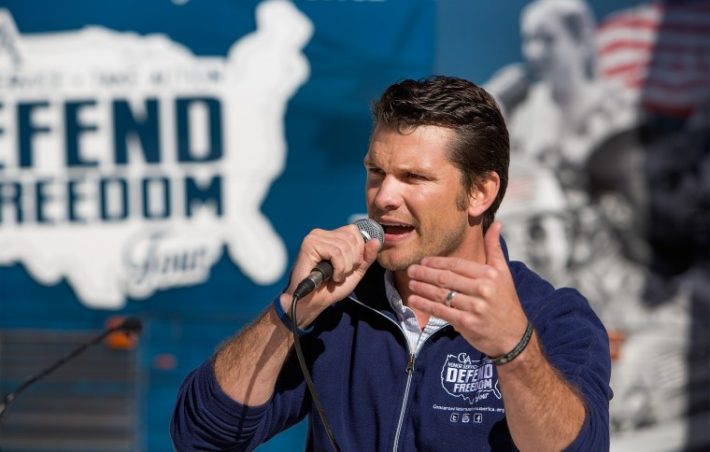
CM: How did you come to choose Princeton, here in N.J., as your choice for college?
Hegseth: One word: basketball. My dad was a basketball coach. I grew up obsessively playing basketball as a child and teenager. I wanted to play college basketball, it was always a goal of mine. It was between going to West Point or Princeton. I did want to serve, but it turns out Princeton had a better basketball team. While I wasn’t a highly touted recruit, they did hope I would come. Princeton had ROTC, so I realized I could play on a big-time basketball team and get a chance to serve. It was a good school, and I knew that, but coming from a small town in Minnesota, I had no understanding of the Ivy League and I didn’t know anything about New Jersey. But it turned out to be a wonderful four years.
CM: Was this area (NJ) a major transition for you from life in Minnesota? Or did you find them similar?
Hegseth: It was a major transition. In fact, it’s one of the things I want to change about how I parent my kids. I love everything about how I was raised. I’m grateful for my parents, and my community, my coaches, my teachers, my pastor – the things like that. But, I was utterly unprepared for that transition (from high school to college). Almost comically so – emotionally unprepared. To be away from home, to be on my own, to not be near my girlfriend – and as a result it was a really difficult transition. It had nothing to do with Princeton, or the community, it was a wonderful place and I met the best of friends, but I think I was in a bit of a cocoon and when that cocoon burst, it took me a while to get my footing. But I did, ultimately. Princeton was a very different place, with a very different set of priorities than where I came from and that’s why I got involved with The Princeton Tory, which is the conservative magazine at the college. I became the publisher. It was a big part of the cultural and political debates on campus at that time, of course that was right after 9/11. There was a lot going on.
CM: Did you get involved with the military through ROTC?
Hegseth: I was ROTC at Princeton. I actually joined the spring before 9/11 and then 9/11 was the ultimate validator of the decision to serve. Balancing school, service, summer training, basketball, and The Princeton Tory publication was an exercise in multitasking. The leadership, organizational management, and the toughness that ROTC and the military taught me is one of the most valuable lessons I’ll ever learn. The military officers at ROTC, they were great and they prepared us as well as we could be prepared.
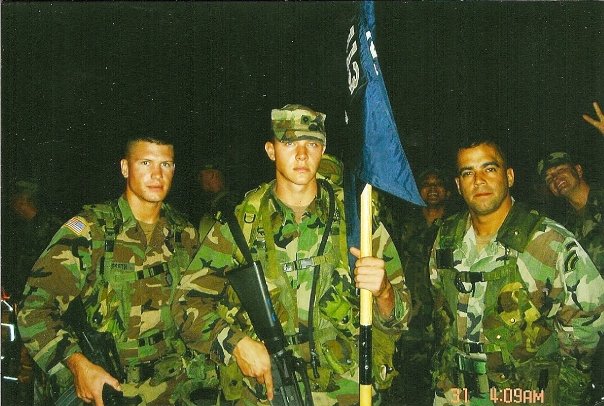
PHOTO: Hegseth (left) at Guantanamo Bay
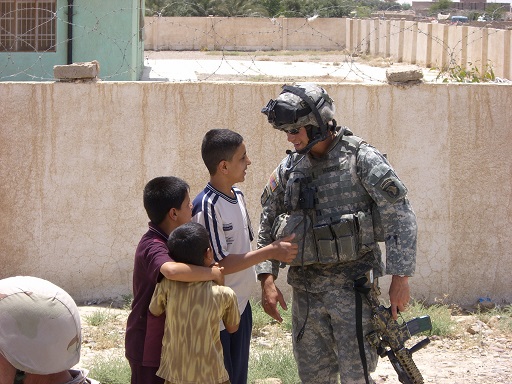
PHOTO: Hegseth in Samarra, Iraq (2006)
CM: As an infantry officer you were sent to Cuba, did you serve at Guantanamo?
Hegseth: When I graduated Princeton I went to Fort Benning. In fact, I believe it was two days after I graduated. So I graduated college I think on June 3rd, and I believe it was on June 5th I was boots on the ground at Fort Benning for four months of Infantry Officer Basic Training. When I got back from Fort Benning I started my job at Bear Stearns, which is the job I got when I was a senior at Princeton. Just a couple of months into the job I got a call at my desk from my commander saying I was being ordered into active duty and deployment to Guantanamo Bay. Oh and then I got married that February. So I was newly married, just out of college, new job – now out of nowhere, headed to Guantanamo Bay to guard detainees for a year. It was a long year. An important mission, but a long year.
CM: You volunteered to serve in the war zones of Baghdad and Samarra, what led you to that decision?
Hegseth: I’ve written about it a little bit in my book, In The Arena. I came back from Guantanamo Bay, took a brief break, then went back to work at Bear Stearns. I’ll never forget this series of events. I was reading about a suicide bomber in Iraq, the Iraq war was really heating up, and the suicide bomber had killed a bunch of women and children and civilians. I was watching the war coverage and the war was dragging on and not getting better. And I remember just sitting there at my banking desk thinking that I needed to be a part of this. Like I was going to regret it if I didn’t contribute, so I started emailing people I knew were on active duty. One was Captain Dan Hart, he had been my platoon trainer at infantry school, so he had trained me. I emailed him saying by any chance did he need a platoon leader? Turns out he did. But I had to get to the unit within eight weeks to join them and go. And that’s when it started a flurry of bureaucratic maneuvering, if you will, trying to get out of the National Guard unit and transferred specifically to a specific unit deploying to Iraq. We were in Iraq, in Baghdad, for the latter part of 2005 and then in Samarra through the first half of 2006 and that’s when – some folks will remember the Mosque bombing that triggered a lot of the sectarian violence when al-Qaeda blew up the Mosque in February in Samarra. I woke up to that explosion and then that night meeting the city leaders. I was both a platoon leader and a civil military operations officer. Basically I was our unit’s liaison between the local government and tribal leaders. And that turned into a big, strong relationship that led to a lot of intelligence and dismantling, at least in the near term of the insurgency in Samarra.
CM: You received several medals and honors while stationed in Iraq and Afghanistan. Can you share why you won the medals?
Hegseth: Probably the one that I’m most proud of I can share, it’s hanging on my wall as the first award I ever got in combat, an Army Commendation Medal. I was the first lieutenant. The mission was at midnight on December 9th, 2005 and the award was for exceptional performance as a platoon leader. It was an air assault raid that led to the capture of two high value targets with ties to al-Qaeda in Iraq and effectively marked the end of an insurgency, etc. So it was the first night air assault combat mission. As a platoon leader you don’t really earn the trust of your men until you show them in the field. And I feel like the Army Commendation medal did that. A lot of guys have Army Commendation Medals, it’s not like a silver star or anything like that. But to me it was validation I could do the job that I was there to do, fight alongside my men.
CM: What can you share about your time in Iraq and Afghanistan?
Hegseth: Yeah. You know, especially in Iraq, you see sheer humanity. Everything is stripped down to a basic level – human needs, desires, clans, tribes, fighting for your brothers, showing courage, managing fear. All of those things are real. You’re driving down a street that you know is controlled by al-Qaeda, you’re in a Humvee, and you’re blaring nasty messages because you’re trying to provoke them. You’re sort of thinking, OK when’s the RPG going to hit? Ya know. There are moments like that you certainly remember forever. But I’ve learned a lot about human nature, a lot about what you can actually accomplish in war, and how it should be conducted if we want to win. A true love for our country and great appreciation for our country. Love of the other men and women who are willing to put their lives on the line and give up everything because they believe in the freedoms that we have. You start to viscerally respect and understand and appreciate those freedoms. And when you come home you feel empty. You feel it. And it all feels frivolous, and not meaningful, and that is a big thing you have to overcome when you transition back home…finding that sense of purpose and meaning in a world where we’re told to care about a lot of meaningless stuff. It’s actually a real challenge. So I learned radical Islam is a huge threat to humanity and our future. I also learned that there are a lot of good Muslims, and I helped some of them come to this country, so you can believe both at the same time. And you can also believe that America is a force for good but also that America, what we can actually accomplish, it’s more limited than we think. You can’t remake a whole country or society. In Afghanistan, it was like biblical times with AK-47s and cellphones, and we were in the most modern place of all in Kabul. My job was to instruct units coming in about the geopolitical… I was an instructor…American units, International, NATO units, Afghan units would come through and my job, which is supposed to be for a colonel but they gave it to me as a captain, I was in there talking to them about counterinsurgency strategy and the application in different parts of the country. So I got to learn a lot about what we were doing, whether it was good work or not, and quickly came to the belief that what we are attempting to do there is never going to happen. And that’s why, even though I went there saying we had to win, that we have to do this right, and going there after 9/11 was important – I think we need to recalibrate what we can accomplish in the long term.
CM: So where does your desire to be involved in broadcasting come from? Did you study journalism at Princeton?
Hegseth: I did not study journalism. I studied politics. My senior thesis was about presidential speechmaking. I’ve always had a thing for rhetoric. What rhetoric works and why. I never had the thought of being on TV. My first appearance was on Hardball with Chris Matthews (on MSNBC) getting yelled at and cut off like fifty times. I got advice from my buddy, he said lean forward in your chair and don’t let him cut you off. Well I did lean forward, but he cut me off the whole segment. I was totally thrown into the fire from day one. I learned how to handle it, but I always come at television from the perspective of being an advocate. I only do it because I believe in it. I have no desire to be a broadcaster for broadcasting’s sake. I have no desire for my mug to be on TV for the sake of it. I got to be on TV because I was fighting for things that I believed in and then that moved into broader commentary as I think folks recognized that it wasn’t just the military or national security or foreign policy or vets that I could talk about. That I had run for office myself, that I had a background in politics and I’ve been involved in advocacy and I knew people on Capitol Hill, I’d been a part of national PACs and running ads and strategizing with candidates and helping candidates win and things like that. So as more of that was made known, I got a chance to comment on a wider set of issues. That just kind of was what it was for many years. Then FOX & Friends one day asked if I’d ever thought about trying to host. And they gave me a shot. But I think if I was ever asked to just do straight news, or whatever, then I wouldn’t be on TV. But FOX & Friends gives me a chance to be a part of shaping the opinion and the debates of the day. And for that I’m grateful. Obviously, I still have a heart toward all the military national security stuff that I’ve talked about for a long time.
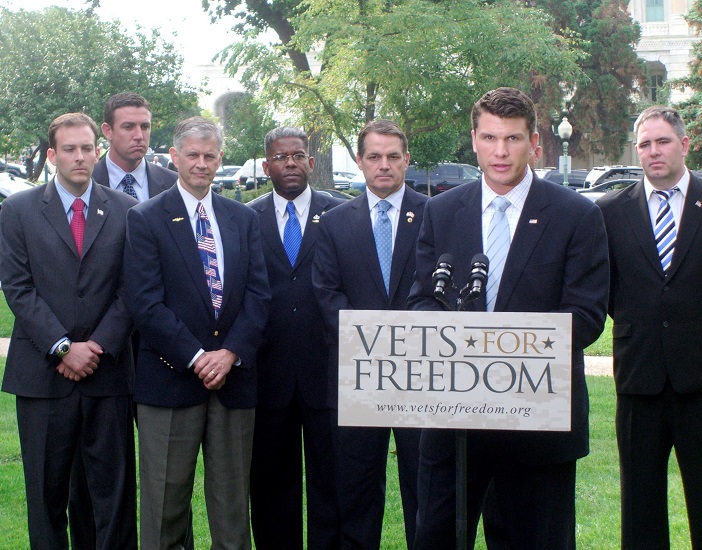
CM: You have a Master’s in Public Policy from Harvard, is a political career your ultimate goal?
Hegseth: No, I think at one point maybe I thought it was. But then you go through and you realize there’s a lot of other ways to have influence and impact other than being a member of Congress or running for office. So if that were to be a calling, someday maybe, but I’m happily not even thinking about or calculating or speculating about when or how or where. I gave up that mindset a long time ago.
CM: You now live in the hills of Holmdel. What are your impressions of Monmouth County?
Hegseth: I love Monmouth County. It reminds me – it’s different and it has different impulses because it’s more the culture of New York – but the goodness and the decency is there just like I’m used to in Minnesota. So Monmouth County is a great place and Holmdel is a great place. And we’re excited to be here.
CM: I’m told you chose your daughter’s preschool because the American flag was displayed outside. It that a true story?
Hegseth: It is my significant other’s daughter Kenzie, and it’s Home Away from Home Academy. I don’t know that it’s because there were flags but we did check and they say prayers before their meals, they say the pledge every day, they are very proud and patriotic. And that is a prerequisite for me. We live in an era where they feel it’s okay to not reinforce patriotic and traditional American values. And they don’t have to emphasize civics and history. So when I’m looking at the kinds of places I want my kids, kids under my stead, to go, you better believe that’s what I’m looking for and Home Away from Home is wonderful and they do a great job. So we’ve got two there, Gwen will go there eventually I’m sure, and then we’re closely watching the Holmdel public schools. I think like any parent you have to pay attention to what’s in the curriculum because even the best schools have some of the PC notion that we’ve seen move into education especially in the 21st century. So we’ll be watching.
The Department of Veterans Affairs invites individuals, veterans groups, military personnel, civic organizations, businesses, schools, local media, celebrities and sports stars to participate in a variety of activities at the VA medical centers. The activities and events include special ward visits and valentine distributions; photo opportunities; school essay contests; special recreation activities and Veteran recognition programs. For more information, visit www.volunteer.va.gov/NationalSaluteVeteranPatients.asp.
Recommended for you
Kids with Cancer Need Help… Here’s What You Can Do
The daily burdens thrust upon families who are battling pediatric cancer are [...]
Monmouth County Historical Association Virtually Celebrates Annual Garden Party
FEATURED PHOTO: MCHA Executive Committee: (l to r front row) Kathy Jones (2nd [...]
Meet Your Neighbor: Stacy Wiener
FEATURED PHOTO: This is where caption text will go for featured photo. As [...]
Monmouth Film Festival Redefines the Festival Experience this August
As film and theater folk like to say, the show MUST go on, [...]
Meet Your Neighbor: Laura Ciccone, Educational Advisor
FEATURED PHOTO CREDIT: Cathy Padilla Laura Ciccone lives in Lincroft with her [...]
Pet Celebs: August 2020
Your pets can be celebrities too. Send in a photo to info@communitymagazinenj.com! [...]



